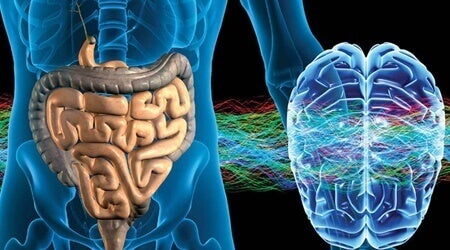The enteric nervous system is considered our ‘second brain’. There is a complex network of more than one hundred million neurons (almost as many as in the spinal cord) that?Specific areas such as the small intestine and colon. is able to act independently with respect to the brain.
You could say that, without a doubt, this area of the autonomous nervous system, responsible for regulating digestive processes, is one of the most interesting of our organism, in recent years we have seen many publications on this idea: to consider the enteric nervous system as our second brain (although it can be said, of course, that a part of the scientific community does not agree with this hypothesis).
- One of the best-known works on the subject is that of Dr.
- Michael D.
- Gershon.
- Director of Columbia University’s Department of Anatomy and Cell Biology.
- In his book “Second Brain”.
- The well-known father of neurogastroenterology develops important ideas.
- Such as the fact that 95% of Serotonin and 50% of dopamine are produced in the gastrointestinal system.
While this fact was not surprising in itself, in May of the same year, the University of Flinders in Adelaide, Australia, discovered something even more impressive that was published in The Journal of Neuroscience: the enteric nervous system is capable of generating electrical activity, and it does so with a unique and different brain model.
Learning more about this structure can reveal aspects of ourselves that we don’t know about.
“The knowledge we had so far of the functions of the enteric nervous system has always been at the level of the Middle Ages. Is it time to find out what you’re doing for us? – Michael D. Gershon-
The enteric nervous system is very extensive, let’s think it starts in the esophagus, ends in the anus and covers the entire area of our digestive system which has an average length of 10 to 12 meters; in turn, within these organs, like the In the case of the intestines themselves, there is a vast tapestry of neurons, as we indicated at the beginning.
In addition, another interesting aspect is the fact that this part of our body, in addition to being highly specialized, performs its functions autonomously, in addition, although it communicates with the central nervous system, it is able to send a lot of information. to the brain Let’s look at more data and characteristics.
As we have said before, the enteric nervous system is able to function independently of the central nervous system, which can definitely draw our attention because, as Dr. Michael D points out. Gershon itself, the intestine is the only organ in the body capable of functioning autonomously.
However, sometimes, it needs essential communication with the brain, communication made by the vagus nerve.
Out of curiosity, a study conducted at Duke University’s School of Bioengineering found that out of ten communications between the brain and intestine, 9 come from the brain.
In conclusion, one aspect must be observed. Do some people think they understand the enteric system like ours?Second brain? It’s a mistake. The neurobiological arguments provided by the scientific community are (for the time being) questionable. For others, however, they are strong enough.
Anyway, it is worth mentioning a detail: this set of nerve fibers does not “think” presents any cognitive process, but feels it, is sensitive to stress, emotions and is capable of regulating various functions to ensure our well-being. .
The enteric system is therefore another control center essential for life, let us take good care of it.

